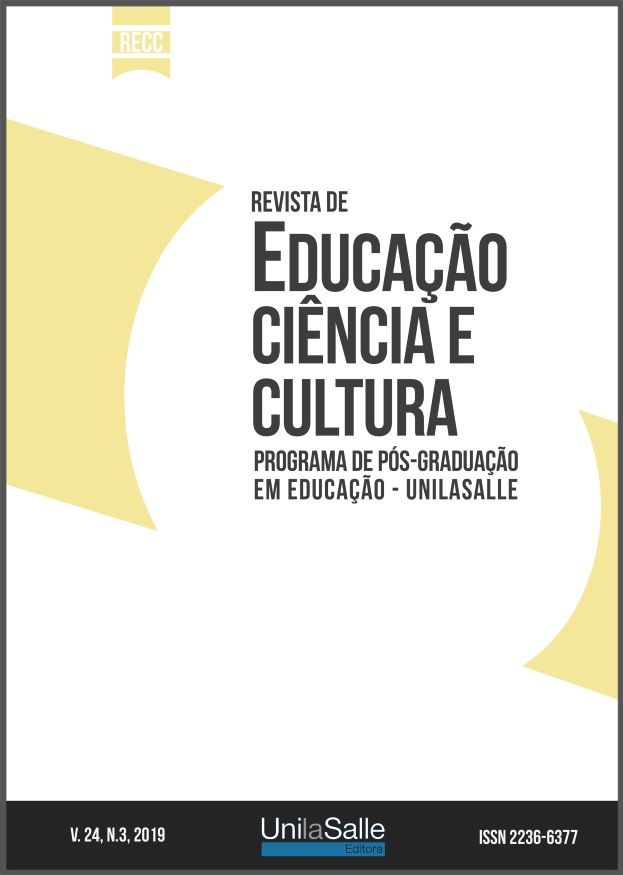“Students are all equal, they have no gender:” an analysis of sexual education practices and the face of homophobia in schools
DOI:
https://doi.org/10.18316/recc.v24i3.5278Keywords:
Sex Education, Homophobia, Sexual Diversity, Prejudice, Public Policy.Abstract
By analyzing the public policies which aim at combating homophobia implemented in Brazil over the past 15 years and the researches on this subject, we can come to the conclusion that there is awareness that homophobia is an important and priority problem in Brazil. Studies also indicated that, although there is consensus that the fight against homophobia should start from the childhood, little is known about the state of homophobia in the school community and very little about why this problem persists in schools. A descriptive and exploratory study was
carried out, by using qualitative approach and content analysis, aiming to describe the homophobia situation in the school community in 11 Brazilian state capitals. We used: in-depth interviews with education secretaries who work for the states and for the cities; directors and education coordinators; focus groups with teachers and students; informal interviews with administrative staff; and observation of the school environment. While legislation related to sex education should be a cross-cutting theme and include aspects of gender and sexual diversity, it is noted a great distance from what really happens. This survey corroborates with national data and several surveys that were done at local levels, in several Brazilian cities. The authorities’ discourse concluded that public sex education policies that consider sexual diversity exist, but when in practice, it happens in a spontaneously form and focuses only on the biological aspects of pregnancy and STI / HIV-AIDS prevention. The data here displayed has a strong presence of homophobic prejudice and the school’s unpreparedness to deal with sexual diversity. This configuration is problematic when it comes to dealing with the sexuality, since it is an isolation from the larger dimensions of life and prevents its motivating force from participating in other school practices.
Downloads
Published
Issue
Section
License
Authors must submit their manuscripts to be published in this journal agree with the following terms:Authors maintain the copy rights and concede to the journal the right of first publication, with the paper simultaneously licensed under the License Creative Commons attribution that permits the sharing of the paper with recognition of authorship and initial publication in this journal.
Since the articles are presented in this journal of public access, they are of free use, with their own attributions for educational and non-commercial purposes.
The Periodic Journal of Education, Science and Culture in http://www.revistas.unilasalle.edu.br/index.php/Educacao was licensed with a Creative Commons - Attribution - Noncommercial 3.0 Not Adapted.


